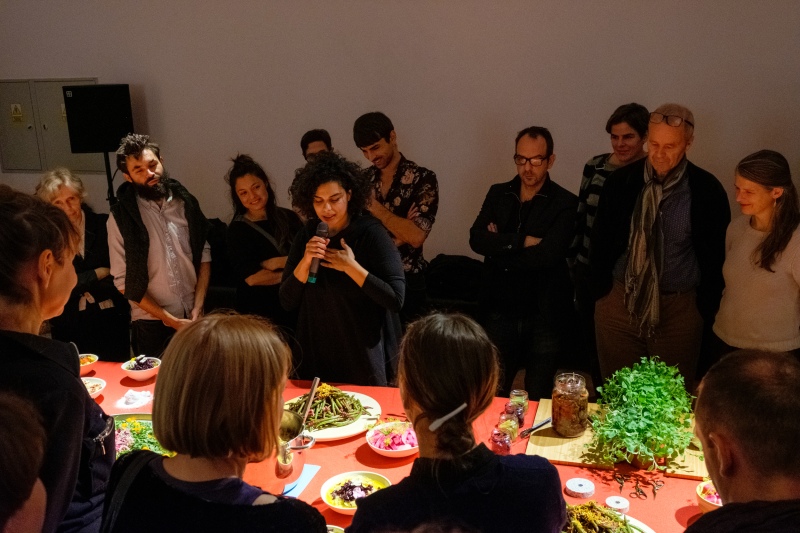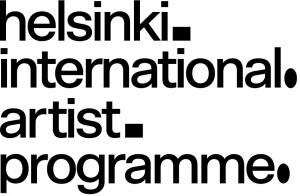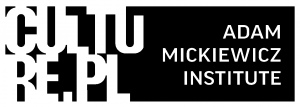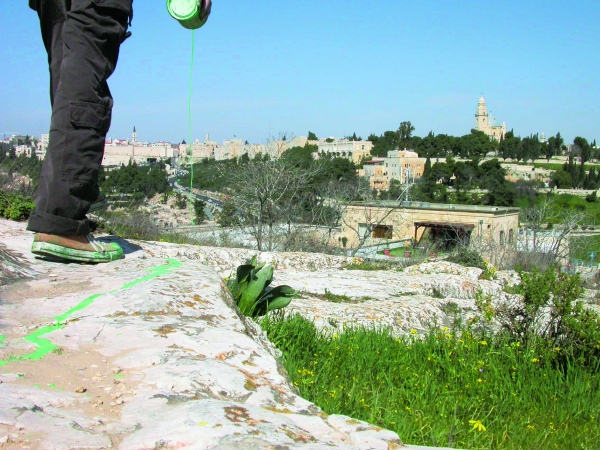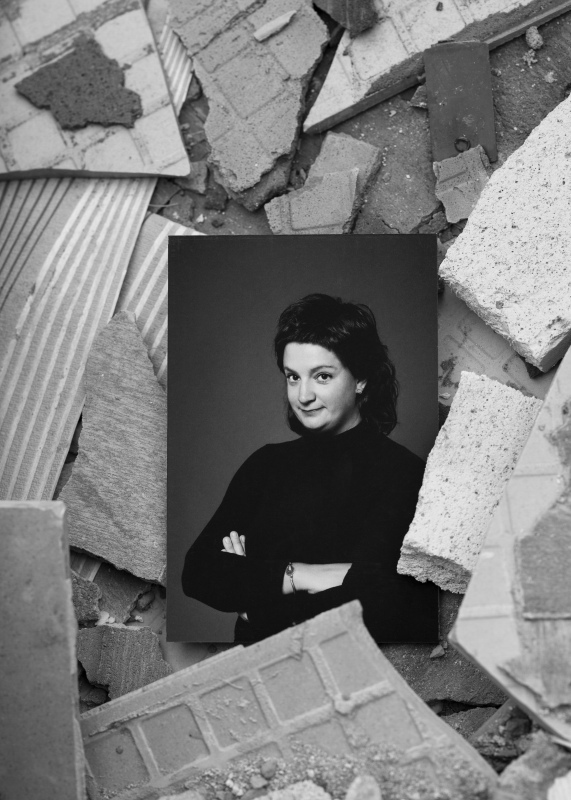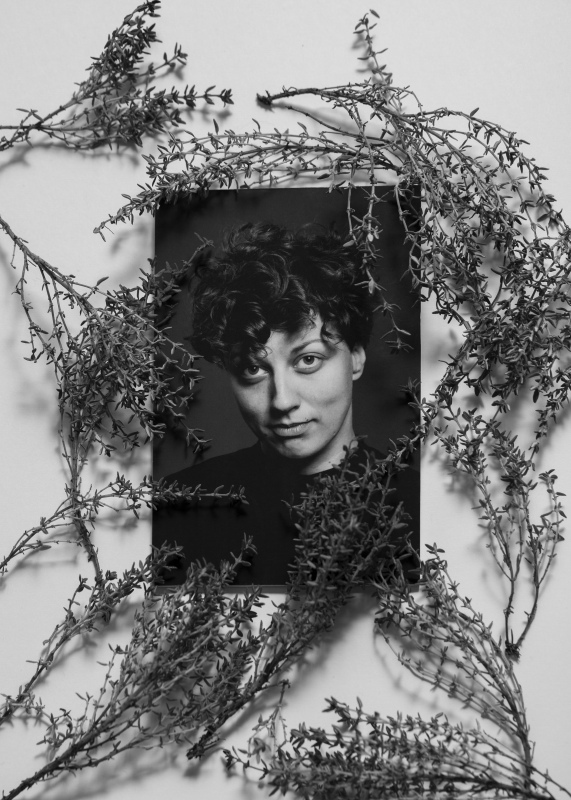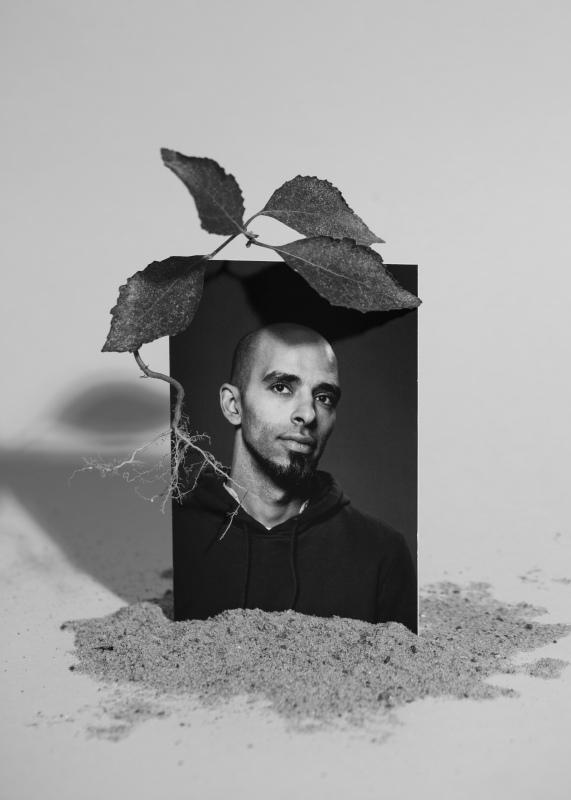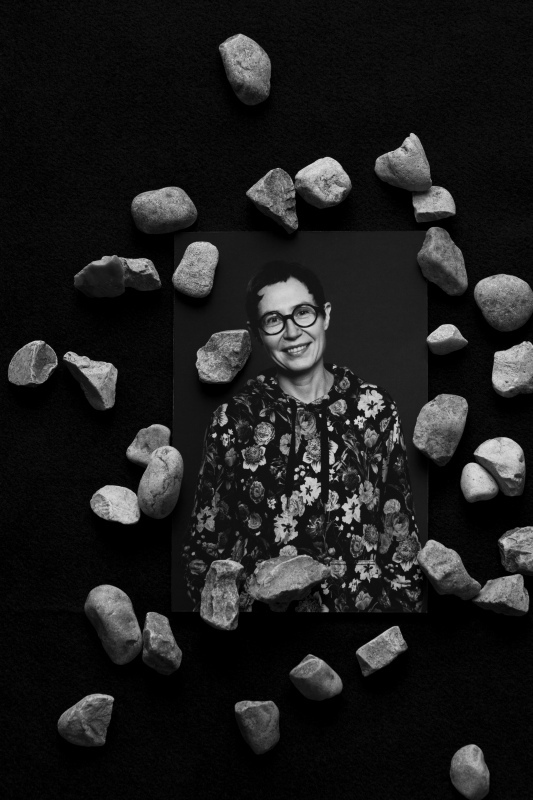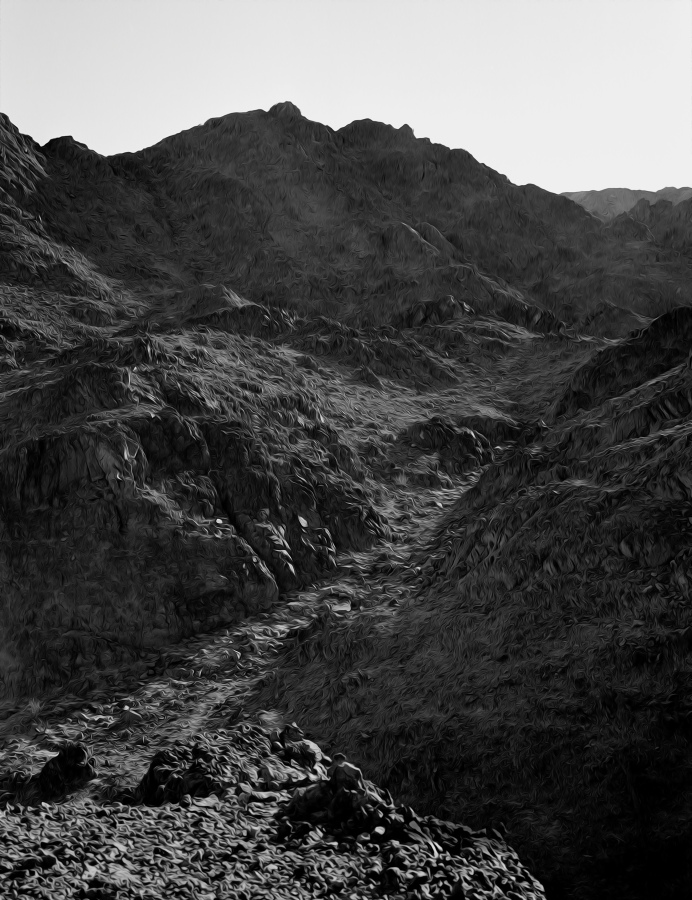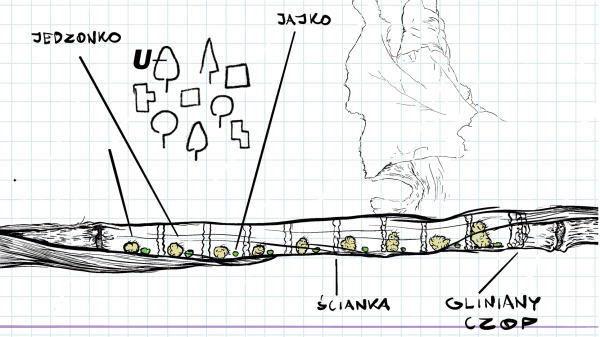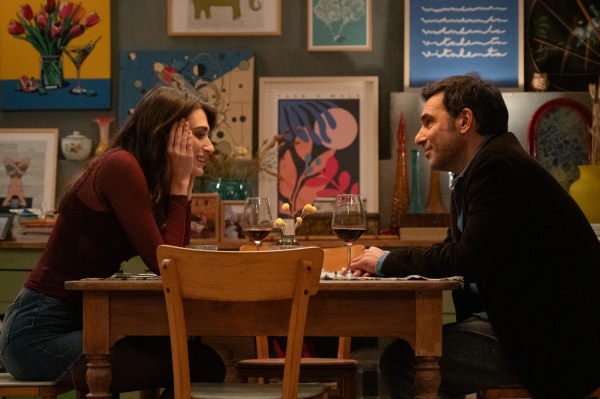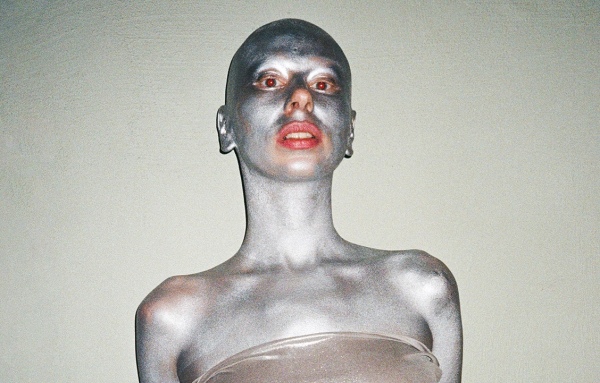Everyday Forms of Resistance
-
Jumana Emil Abboud
- works with drawing, installation, video and performance, exploring personal and collective memory, loss, longing and belonging, with a specific interest in storytelling practices and oral histories. Abboud has participated in numerous exhibitions and venues over the last two decades, including the Venice, Sharjah, Istanbul Biennales; the Jerusalem Show/Qalandiya International; in addition to projects with BALTIC Centre for Contemporary Art, Gateshead; the Khalil Sakakini Cultural Center; Ramallah, Bildmuseum, Umeå, Sweden; Darat Al Funun – Khalid Shoman Foundation, Amman, Jordan; the Palestinian Museum & Tate Live exhibition, Tate Modern, London. Abboud is based in Jerusalem.
-
Ahmed Alaqra
- studied architecture at Bir Zajt University and the University of Edinburgh. He currently lives in Ramallah and Paris, completing a doctorate in architecture and spatial anthropology at Université Paris Diderot VII. During his creative stay in Helsinki (September–November 2019), Ahmed continued working with the Kalandija refugee camp in Jerusalem. He wants to better understand the unusual spatial deconstruction by the camp’s residents, who seek to free themselves from the politicized nature of the disputed geography.
-
Sally Abu Baker
- was born in 1974 and holds a BA degree in Economics and Business Administration, Birziet University 1997. Her career in culture started at A. M. Qattan Foundation in 2003. In 2009, she moved to the Institute of Palestine Studies as project coordinator where she worked part time until 2014. In 2009, she was appointed the art and cultural project manager at the Ramallah Municipality and she coordinated for 10 years in raw the first public art festival in Palestine Wein a Ramallah. She became the Director of Culture and Social Affairs Department in 2014.
-
Mirna Bamieh
-
is an artist and performer from Jerusalem/Palestine. Her work contemplates the ever-shifting status of the ‘in-between’ and the politics of temporal geographies. She often utilises the language of absurdity and irony to convey a political commentary. Using her diploma in culinary arts as a medium for performance, archiving, and storytelling, Mirna creates socially engaged projects, which offer a unique experience into the self and the immediate context. During her time at the residency in Poland (August–October 2019) she develops culinary art installations, focusing on fermentation and preservation processes, understanding them through personal/intimate (untimely), as well as historical (timely) perspectives.
-
-
-
Dominika Blachnicka-Ciacek
-
is an assistant professor and visual sociologist currently based at SWPS University of Social Sciences and Humanities in Warsaw. Her research and audio-visual practice focus on the intersections of memory, spatiality and (forced) migration in contested urban environments in European and Middle Eastern contexts. Seeking inventive ways of translating her research into the forms of public engagement she directed a collection of short films The Chronotopes of Palestine (2016) which explored issues of memory, erasure and displacement among three generations of Palestinian refugees and worked on number of curatorial and programming projects such as Beirut - Warsaw. Re - birth exhibition (Warsaw, 2014), Refugees. Present/Absent (Kraków, 2016) exhibition and Past Disquiet documentary and archival research which traced the story of the International Art Exhibition for Palestine, which opened in Beirut in 1978.
-
-
-
Khaldun Bshara (PhD)
-
is an architect, restorer and anthropologist. He is currently the Director of RIWAQ Centre in Ramallah, Palestine, where he has worked since 1994, documenting, protecting and restoring Palestinian built heritage. Since its establishment in 1991, RIWAQ has been preoccupied with restoring not only the historic buildings and spaces in Palestine, but also the practices they once contained. In rendering these spatial practices and longing explicit, restorers make possible the transformation of architectural heritage into symbols. As an explicitly formatted aesthetic form, the symbol becomes available for political action. Spatial practices in colonial context are, therefore, dialogic practices that are not explicit representations, but a creative engagement with the political.
-
-
-
Wim Catrysse
- is a Belgian artist and filmmaker. He has worked in various media, but since the late 1990s has focused on film in the form of multi-channel video installations and single-screen works. Catrysse’s films are rarely the result of a preconceived idea, but arise from direct and intuitive interactions with the geographical and socio-cultural aspects of a place and its inhabitants. In his recent films Wim Catrysse focuses on sites of industrial exploitation, where contested environments and reckless human interaction determines the geography. Wim Catrysse’s approach is an attempt to fulfil a catalytic role in the development of an artistic mind map with regard to the complex relations in a globalized world.
-
Karolina Grzywnowicz
- is a visual artist with an interdisciplinary approach. Her practice is research-based, making use of archival materials, interviews, oral histories and bibliographic records. She looks for parallels between historical events and contemporary social and political discourses driven by urgent issues of exile, migration and displacement. Her recent works deal with plants in often violent social and political contexts. During her residency in Ramallah (May–June 2019) she developed the project Every song knows its home – an archive of songs sung by members of Palestinian diaspora, which preserve erased and repressed memories of displacement, and become a political act and form of resistance.
-
Sandi Hilal
- is an architect, artist and educator. She is a founding member and Director of DAAR – Decolonizing Architecture Art and Residency, and is a co-founder of Campus in Camps, an experimental educational program established in Dheisheh Refugee Camp, Bethlehem. She headed the infrastructure and Camp Improvement Program in the West Bank at United Nations Relief and Works Agency for Palestine Refugees in the Near East (UNRWA) from 2008 to 2014. In 2006, she obtained her doctorate in transborder policies for daily life in the University of Trieste. She is currently developing an ongoing artistic research project centered around the concept of hospitality manifested through the project Al-Madhafah: the hospitality room and the right to be a host.
-
Juha Huuskonen
- is an activist, organiser, facilitator and curator based in Helsinki, Finland. His interests and areas of expertise include digital culture, art & science collaborations, cultural policy, learning systems and speculative design. He currently works as the Director of HIAP – Helsinki International Artist Programme.
-
Simone de Iacobis
- studied architecture in Rome, attended a two year program of both basic and advanced photography courses and participated in several exhibitions including the Fotografia Festival Internazionale di Roma. He practiced at Urhahn Urban Design in Amsterdam, STAR, strategies + architecture in Rotterdam, and collaborated with studiometrico in Milan. Simone has been awarded prizes both in architectural and photographic competitions, and is a former fellow of Akademie Schloss Solitude and Khoj International Artists’ Association.
-
Jarosław Lubiak
- is an Artistic Director at the Ujazdowski Castle Centre for Contemporary Art in Warsaw, Poland. In his work as a curator and art critic he focuses on crossings between contemporary art, philosophy and social sphere, aesthetics and politics, art institution and political economy. He recently curated Slavs and Tatars: Mouth to Mouth, Ujazdowski Castle Centre for Contemporary Art (2016-2017), Human-Free Earth and Centre for Contemporary Nature as part of the project Plasticity of the Planet, Ujazdowski Castle Centre for Contemporary Art (2019).
-
Anna Ptak
- is a curator focused on the ecological and political aspects of cultural practices, interested in practice based research. She works at the Ujazdowski Castle Centre for Contemporary Art in Warsaw. In 2018 she curated Amplifying Nature exhibition by Centrala in the Polish Pavilion at the XVI International Architecture Exhibition in Venice – la Biennale di Venezia.
-
Joanna Rajkowska
- is an artist based in Warsaw and London. A versatile artist, Rajkowska is best known for her work in public space, where she uses real-life situations, energies, organisms and materials to construct sites, installations and ephemeral actions. De-familiarizing, de-humanizing and relating are her operating devices. She is interested in the limitations and the limiting of human activities, multiplicity of agencies and human and non-human relations.
-
Mohammed Saleh
- is a permaculture designer, activist and educator who holds two degrees in both Psychology and Musicology. He has been working in the field of sustainability for about a decade. He founded, Mostadam Eco Design, an eco social enterprise that provides ecological solutions through implementation, education, design, and consultancies tailored to fit the local culture, climate and challenges. In the last years, Mostadam has brought innovative methods in greening the urban environment, bringing nature back to the city, and hearts of the people, using various techniques like vertical gardens, the Top Pot, small food forests, edible landscaping and Aquaponics (soil-less farming) both to schools and the private sector. Lately, Mostadam has been leading, certified Permaculture courses, international projects and developing along with academicians the EcoPonics system.
-
Wisam Sharabati
- is an architectural engineer. Working with the United Nations Development Programme (UNDP) in renovating and rehabilitising deteriorated homes in East Jerusalem, his work includes providing moral and social support, educational opportunities, economic development programs, and advocacy to families and individuals of the marginalized Palestinian community. Wissan is currently a micro/macro project manager at Al-Nayzak, in areas of engineering, education and development. His vision is to contribute to society through art and architecture, while seeking a better future based on community, justice, and independence.
-
Bogna Świątkowska
- is the initiator, founder and president of the board of the Bęc Zmiana Foundation, with which she has completed several dozen projects devoted to public space, architecture and design, as well as competitions addressed to architects and young generation designers. She was also the initiator and editor-in-chief of the magazine "Notes for 6 weeks,” the editor-in-chief of the first pop-culture monthly “Machina” (1998–2001), author of numerous texts, interviews, radio and television programs devoted to contemporary popular culture.
-
Salim Tamari
- is an IPS senior fellow and the former Director of the IPS-affiliated Institute of Jerusalem Studies. He is the editor of Jerusalem Quarterly. He is a professor of sociology (Emeritus) at Birzeit University. He has authored several works on urban culture, political sociology, biography and social history, and the social history of the Eastern Mediterranean. Recent publications include: The Great War and the Remaking of Palestine (2018) Year of the Locust: Palestine and Syria during WWI (UC Press, 2010) Ihsan’s War: The Intimate Life of an Ottoman Soldier (IPS, Beirut, 2008); The Mountain Against the Sea (University of California Press, 2008. Tamari has served as visiting professor at Columbia University (2018), Harvard University (2017), Georgetown University (2010, 2013), University of California at Berkeley (2005, 2007, 2008) was an Eric Lane Fellow at Cambridge University (2008) and lecturer in Mediterranean Studies at Ca Foscari University (2002-present).
-
Timo Tuhkanen
- is an artist, composer, poet, activist and Director of Myymälä2 gallery in Helsinki. He was born in Muscat, Oman and studied Tabla & Indian Classical Music at the Oriental Music School of Jerusalem (2002). He received his BA (Honors) and MA at Brunel University of West London. He is currently a PhD candidate at the School of Music, University of Leeds. At the intersection of contemporary art and music, Tuhkanen’s research based practice emerges from a synthesis of sound and touch, as found in everyday life and archives. Currently this involves imagining, designing and creating instruments that act as social interventions and political tools for encountering and including non-humans in decision making processes.
-
Jaśmina Wójcik
-
is a visual artist, director, and educator. Her work deals with the (in)visibility and self-representation of marginalized communities. She is involved in alternative education by developing authorial practices in the creation of children’s artistic expression. Simultaneously she works towards building interactivity within cultural institutions, by treating visitors as co-creators and interlocutors in cultural dialogue. Since 2011 she has led a multidisciplinary socio-political project with former employees of the Ursus tractor factory, which includes site-specific activities in public spaces, socio-artistic actions, performances, happenings, independent film screenings and the production of the full-length documentary Symphony of the Ursus Factory. The project integrates residents of Ursus and other citizens within the history of the district, inviting them to shape the topic and future of the post-industrial zone.
-
